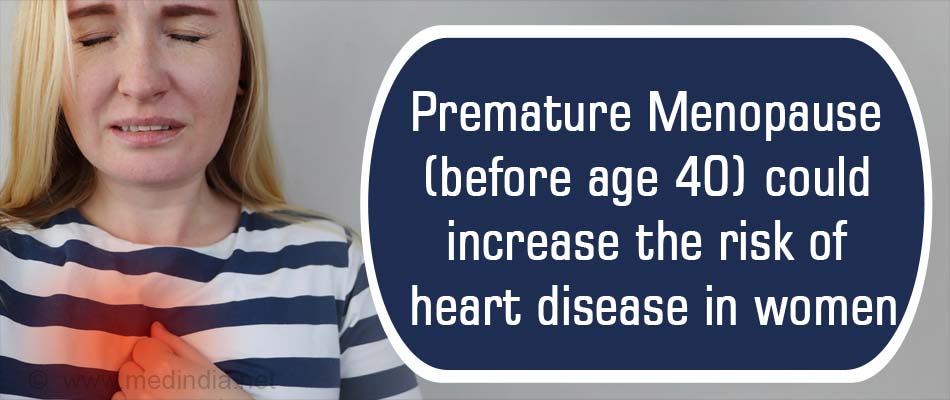Risk of developing coronary heart disease (CHD) is higher in women who experience premature menopause, tells a new study presented in American Heart Association’s Epidemiology, Prevention, Lifestyle & Cardio metabolic Health Conference 2021.
The research completely excluded the ones who underwent surgical menopause while including more than 10,000 Black and White women in the age group 55-69, who were unaffected by coronary heart disease at the start of studies.
The Black and White women were categorized into two main groups, which were further sub-categorized as women who experienced premature menopause and women who did not experience it prematurely.
What does premature menopause mean?
The study defined early-onset menopause as before the age of 40, indicating hormonal changes in the body led to menopause earlier than normal. The medical cause of premature menopause is premature ovarian failure. Common symptoms of premature menopause include mood swings, vaginal dryness, and hot flashes.
‘Women who are menopausal by the age of 40 are at 40% higher risk of developing coronary heart disease over the course of their lifetime.’
Read More..
The study on pooling data from six nationwide study groups revealed that,
- Compared with White women, Black women were more likely to attain menopause at an early age, 15.5% vs. 4.8% respectively.
- Among the participants of the study, the likelihood of developing coronary heart disease is 40% higher in women who experienced premature menopause than the women who did not experience it, even after adjusting for some known confounding factors for CHD such as smoking, elevated blood pressure, type-2 diabetes, and obesity.
So, the age at which a woman experiences menopause influences the occurrence of CHD.
What does this imply?
“If a woman experiences menopause before the age of 40, she should let her doctor know so they can be more proactive about optimizing her cardiovascular health – such as weight management and blood pressure – throughout her mid-life years and preventing heart disease over the course of her lifetime. This is an area where there is a big need for personalized, preventive cardiology care for women focused on lowering cardiovascular risk,” said lead study author Priya M. Freaney, M.D., a third-year cardiology fellow at Northwestern University’s Feinberg School of Medicine in Chicago.
Ways To Prevent Coronary Heart Disease
Source: Medindia



